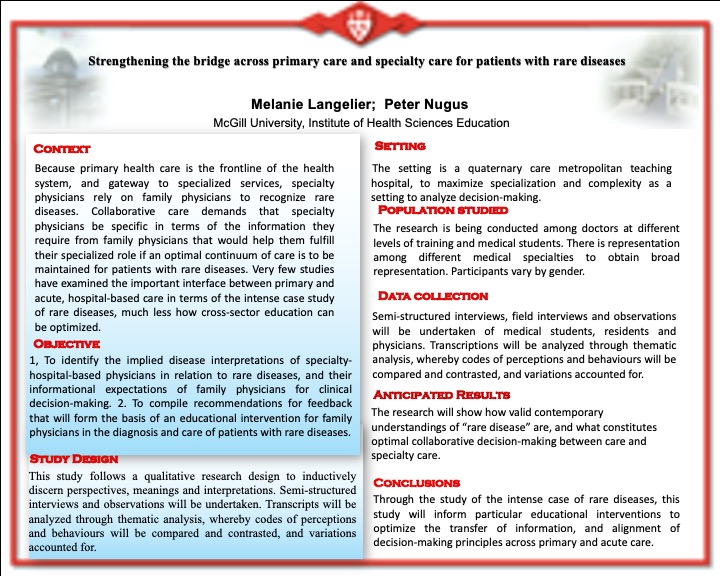SRFP093: Strengthening the bridge across primary and specialty care for patients with rare diseases
Melanie Langelier, MSc, RN, Doctoral Student; Peter Nugus, PhD, BA, MA, MEd
Abstract
OBJECTIVE: 1, To identify the implied disease interpretations of specialty-hospital-based physicians in relation to rare diseases, and their informational expectations of family physicians for clinical decision-making. 2. To compile recommendations for feedback that will form the basis of an educational intervention for family physicians in the diagnosis and care of patients with rare diseases.
STUDY DESIGN: This study follows a qualitative research design to inductively discern perspectives, meanings and interpretations. Semi-structured interviews and observations will be undertaken. Transcripts will be analyzed through thematic analysis, whereby codes of perceptions and behaviours will be compared and contrasted, and variations accounted for.
SETTING: The setting is a quaternary care metropolitan teaching hospital, to maximize specialization and complexity as a setting to analyze decision-making.
POPULATION STUDIED: The research is being conducted among doctors at different levels of training and medical students. There is representation among different medical specialties to obtain broad representation. Participants vary by gender.
ANTICIPATED RESULTS: The research will show how valid contemporary understandings of “rare disease” are, and what constitutes optimal collaborative decision-making between care and specialty care.
CONCLUSIONS: Through the study of the intense case of rare diseases, this research will inform particular educational interventions to optimize the transfer of information, and alignment of decision-making principles across primary and acute care.

Jack Westfall
jwestfall@aafp.org 11/21/2021Very interesting research. Great work. Thanks